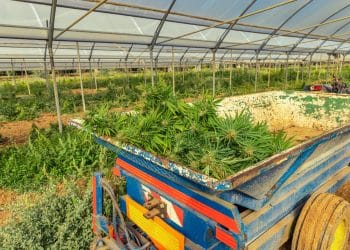In a newly released article entitled “American Edibles: How Cannabis Regulatory Policy Rehashes Prohibitionist Fears and What to do About It,” Boston University School of Law professors Jay Wexler and Connor Burns raise concerns over rehashing early 20th century “prohibitionist fears” against the cannabis plant — edibles in particular. [1]
It is argued that lawmakers’ use of “prohibition inspired regulations” could mean the ultimate ruin of the burgeoning edible market. In addition to tightening regulations, the issue of media and public perception is a prominent theme in the article.
A 2014 article published in The New York Times by Maureen Dowd was highlighted. In the article, Dowd described her experience of taking an edible which resulted in a “scary” experience. Throughout the piece, Dowd relays her suspicions, citing anecdotal evidence of cannabis edible-linked deaths, including an incident in 2014 when a university student leapt off a balcony after consuming a “pot cookie with 65 milligrams of THC,” according to The New York Times. Wexler and Burns were quick to point out that Dowd consumed far over the recommended limit, a phenomenon they call “overconsumption.”
In response to growing reports of overconsumption among consumers, lawmakers began to advocate for predetermined serving sizes and “demarcation requirements,” — a move that Wexler and Burns characterize as improperly guided, resulting in watered down “candy-centric products” that many stakeholders aim to exploit with inferior ingredients. Thus, Wexler and Burns argue that overconsumption falls under the responsibility of the consumer, not the manufacturer.
The researchers argue that fear of “inadvertent consumption” in children is deeply tied to prohibitionist fears in the past and should be disregarded within the context of modern society with strict regulatory controls. “By decreasing the size of the illicit market, imposing regulations to improve product safety, and ensuring that only adults can access stores and dispensaries selling cannabis, legalization generally protects children rather than harming them,” Wexler and Burns argue.
In their conclusion, the authors opine that the “solutions for our edibles problems are not conceptually difficult;” rather, asking the right question in the first place is the biggest obstacle, which ultimately leads to bad policy that ends up harming consumers more than helping them.
Photo courtesy of Margo Amala at Unsplash.
References:
1- Wexler J, and Burns C. American edibles: How cannabis regulatory policy rehashes prohibitionist fears and what to do about it. Seattle University Law Review. 2021;44. Boston Univ. School of Law, Public Law Research Paper No. 21-11.












